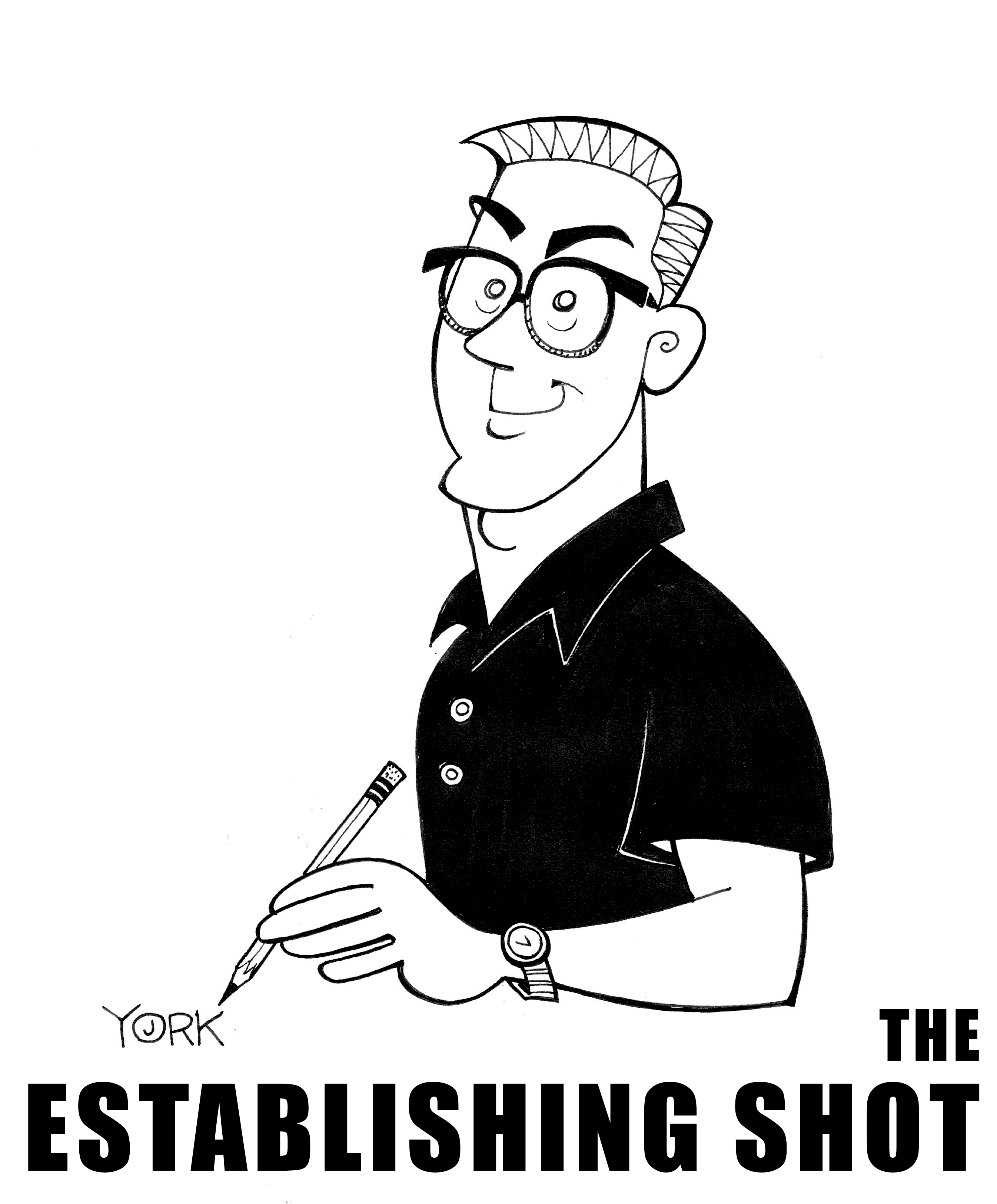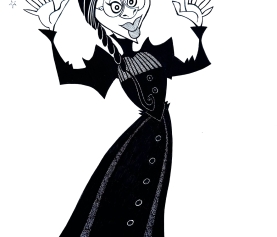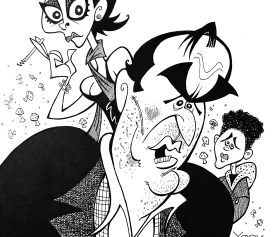
Original caricature by Jeff York of Demi Moore and Margaret Qualley in THE SUBSTANCE (copyright 2024)
Coralie Fargeat’s dark new comedy THE SUBSTANCE takes a lot of chances and succeeds with most of them. It’s a horror film really, showcasing the vicious sexism permeating show business and the panic it induces in actresses hoping to stay in the game. The film is a cleverly written, vividly-shot, and well-acted riff on Jekyll & Hyde about an aging female star discovering a potion that creates a younger version of herself to remain relevant in a town that too often casts women aside once they hit 40. It’s also about 40 minutes too long, becoming almost irritating in its inability to wrap things up when its clarion points have been made beautifully in the first 90 minutes. Still, there are too few original films in the world these days for this one, despite its flaws, to keep you from seeing it. THE SUBSTANCE may feel excessive in its final act, but up until then, it plays spectacularly as a raging, worthy howl at all that is wrong with Tinsel Town.
The story concerns fading celebrity Elisabeth Sparkle (Demi Moore), a one-time actress now instructing women of all ages to find their inner ‘sparkle’ via her aerobics program on TV. (Sparkle seems to be a bit of a parody of Jane Fonda, the acclaimed actress from the 1970s who became an exercise guru in the 1980s.) One day, despite Sparkle still being fit and fabulous, the crass network president Harvey (Dennis Quaid) informs her that it’s over for women like her as they are simply too old. He fires her at lunch and leaves Elisabeth feeling empty; utterly demoralized and in a fog of what to do. That fog distracts her and she ends up in a horrific car accident that she’s fortunate to walk away from. Still, even though she’s virtually unharmed by the event, she bursts into tears in the doctor’s office, broken inside. A sympathetic and gorgeously chiseled doctor leaves her with a flash drive that he suggests may be the answer to her prayers. The drive is entitled “The Substance.”
Elisabeth pops the drive into her computer and discovers a potion that promises to restore her youth. Curious and desperate, she calls the enclosed number and is directed to a scuzzy L.A. alley where she discovers a secret room with a special package waiting for her. The box contains several portioned liquids, IV tubing, and simple instructions on how to enable the process to regain her beauty and youth. To tell more, including all the details of just how her youth is restored, would ruin some of the most provocative and hellzapoppin’ parts of this film. Suffice it to say, your jaws will hit the floor.
From there, the film becomes a gonzo and gory take on Robert Louis Stevenson’s classic body transformation tale, as Elisabeth and her alter ego “Sue” (Margaret Qualley) begin a journey into a brave, new world. And for a while, it’s quite amusing how they conquer the town again and beat the patriarchy at their own game. Yet, despite all of the high sheen to Benjamin Kracun’s glossy cinematography and the throbbing, high-energy score by Rafferti, there is a ghastliness present throughout all that is occurring in the story. It’s funny and mean, true, but it can also be very upsetting – – to the mind and the stomach. As Elisabeth’s situation grows exponentially more dangerous and vicious with each passing day, the film grows uglier. Fargeat swings for the fences, taking targeted shots at everything from lothario producers, titillating television, cosmetic surgery, the entitlement of the rich and famous, and a youth craze that seems to instruct every corner of the world these days. She also shrewdly takes swipes at actresses too willing to give in to their vanity at any cost.
Throughout, Moore gives a bold, raw, and daring performance, one of the year’s very best. She’s always been an underrated actress and this may be her most affecting work to date. Even towards the end, when the film runs long and turns a bit too cra-cra, she keeps us grounded in her character’s plight. Qualley lends superb support along the way too, nailing both the comedy and the tragedy. All of their efforts, and those of the incredible artists below the line, especially some award-worthy makeup artists, are laudable with only the excesses of the third act marring the work. I almost wish that Fargeat would go back and re-edit her efforts here. Less is always more, and here, the more is quite simply Ms. Moore.







